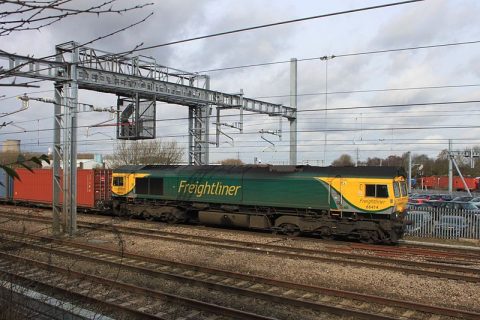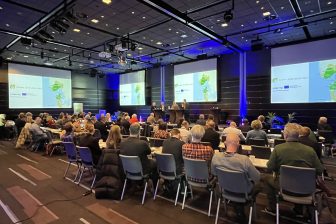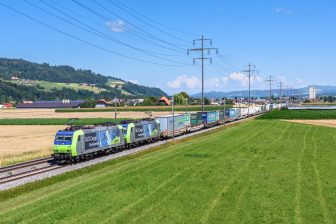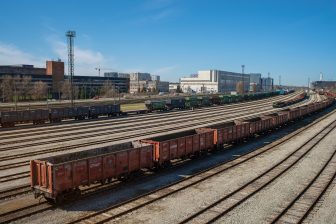
Toll-free Severn Bridges potential blow to Welsh rail freight sector
The Welsh rail freight terminal Wentloog at Cardiff is risking a loss of freight transported via rail when road transport via the Severn Bridges becomes toll-free, say rail freight experts. The terminal already saw its competitive position shrink when the UK government reduced its funding for the rail freight sector in April this year. It appeals to the same government to provide some level of support in order to safeguard rail freight as an attractive alternative.
Earlier this month the UK government confirmed that the Severn bridges would revert to public ownership on the 8th of January next year, allowing tolls to be scrapped by the end of 2018. The news was received with much enthusiasm, as the tolls are considered to be a psychological barrier to doing business with Wales. As lorries are currently charged 20 pounds (21.6 Euros) per trip, the cancellation of the tolls make the road an alternative option again.
Freightliner
The company that operates the terminal at Cardiff, Freightliner, says to be concerned about the potential impact of the abolition of tolls. It would cut about 200,000 pounds (216,000 Euros) a year from the cost of transporting the same number of containers on lorries instead of the current trains from Southampton to Wentloog, said Lindsay Durham, head of Rail Strategy at Freightliner in an article by Walesonline,
“Freightliner will do everything it can to maintain rail services into Wentloog terminal, but the combined impact of the loss of the Mode Shift Revenue Support grant in 2017 and the reduction in lorry costs to Wales from 2018 because of the toll abolition are not helpful in supporting this aim.”
Mode Shift Revenue Support grant
The Department for Transport (DfT) reduced the annual Mode Shift Revenue Support grant (MSRS) from 19.7 million pounds (21.3 million Euros) to 15.7 million pounds (17 million Euros) this year, with a further 500,000 pounds (540,000 Euros) reduction anticipated for next year. This grant is aimed at boosting the transport of cargo by rail, rather than road considering the environmental and safety benefits.
In 2016, more than a million journeys were transferred from road to rail, proving the grant to be a success factor to the industry. The announcement that the grant would be significantly reduced sparked criticism equal to the concern expressed over the abolition of tolls on the Severn Bridges.: rail would prove to be economically unviable and freight transporters are likely to return to the road.
Appeal for support
Freightliner has asked the UK Government to reinstate the grant for its Southampton operation. The terminal currently receives two trains of containerised goods per day: one from Southampton and one from Northamptonshire. According to the company, the train from Southampton is already reeling.
Campaign for Better Transport has also asked the UK government to provide commensurate support to rail freight on the basis that it’s much safer, much less polluting and reduces congestion. “It will be difficult for rail to continue to compete without some support to these rail services that are key to the Welsh economy and in removing lorries, not only from Welsh roads but from the busy road network in the West Midlands and radiating from Southampton”, said Philippa Edmunds of the Campaign.
The Welsh government commented that it already provides a public subsidy for the Wales element of the rail freight movements and calls upon the UK Government to invest towards enabling the efficient movement of goods by rail into Wales for the next railway control period.





